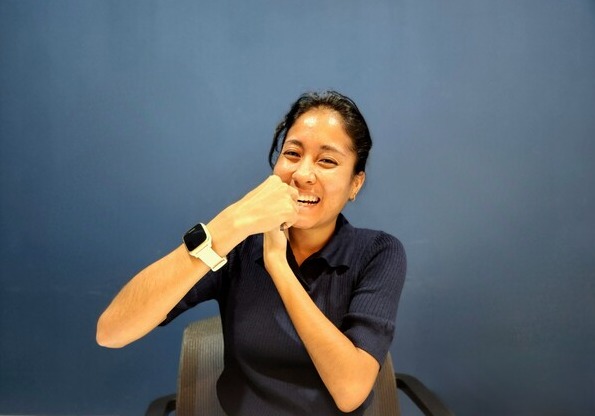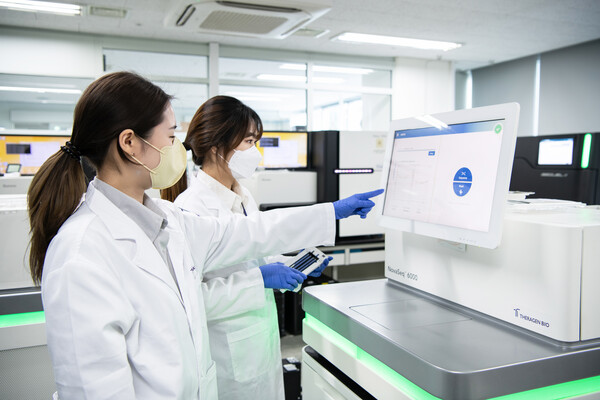This article was written based on our staff reporter’s firsthand experience. – Ed.
Some early birds in the healthcare industry might have heard of “23andMe.”
However, this type of direct-to-consumer (DTC) genetic testing has yet to be widely used in Korea due to a strictly regulated environment for such tests.
That has been the reality although DTC tests allow consumers to request institutions directly to run genetic testing online or through outlets without visiting a hospital.

It was in February 2019 that the Ministry of Trade, Industry, and Energy first approved DTC genetic testing services under its "regulatory sandbox" policy. Still, businesses could not provide the services fully as some were subject to deliberation by the Institutional Review Board (IRB). That changed last December when the Ministry of Health and Welfare certified six local areas for genetic testing services.
The certification is valid for three years but requires further approvals to add other items to the list. The six certified companies are Theragen Bio, LabGenomics, Macrogen, NGeneBio, Genoplan Korea, and Clinomics.
All adults 18 and older are eligible to do the tests.
I took the test at Theragen Bio to find out more about how my genes correspond to my health. The Gene Style Wellness test results usually take two to three weeks to process, but mine was received in 13 days. However, the results of this test were only available in Korean. Later, I was informed that English results are available if you opt for the Gene Style Wellness 55+ test, which tests fewer items.
The results of the 69-item test revealed 14 cautionary items across six health categories, including nutrient management, healthcare, skin and hair care, exercise characteristics, eating and sleep habits, and caffeine, alcohol, and nicotine reaction.
Slightly alarming results but not panicking level yet
The first thing that caught my eye while browsing the summary page of my results was the red caution signs, as there were much more than expected. However, there is a disclaimer that the results and interpretation of the test could differ across genetic testing institutions depending on the gene type and database used for the test. Further disclaimers also warned that the result does not reflect environmental factors or individual lifestyles, so it should not be used for treating or diagnosing diseases.
In this regard, the rate at which genetic factors contribute to the assessed parameter is also displayed according to a specific standard to help the consumer interpret the result.
The score for each evaluated item was explained with the most likely reason and helpful information on the assessed parameter, symptoms to be aware of, and lifestyle suggestions.
One of the results that piqued my interest was my slow caffeine metabolism. Slow caffeine metabolism is usually linked with nervousness, anxiety, and insomnia. This might not be important for someone who does not frequently drink coffee, but I always wondered why I could not digest cafe lattes properly. At first, I thought this might be a sign that I’m lactose intolerant, but I have no problems consuming dairy products. I thought that my slow caffeine metabolism might be responsible for causing metabolites to linger in the blood and interact with something else.
Another surprising result was that my body mass index (BMI) correlated highly with obesity. As no one in my immediate or extended family is obese, I found this result difficult to believe. My BMI has always been classified as underweight, prohibiting me from giving blood several times. Nevertheless, this result analyzed seven genetic variants, which was provided based on the Korean standard that genetic factors contribute to BMI between 14.7 and 32 percent of the time.
A range of some of the other tests included vitamin concentration, blood sugar/blood pressure/abdominal obesity, susceptibility to degenerative arthritis, spots, freckles, acne, skin aging, hair loss, prematurely grey hair, various exercise fitness, muscle development ability, metabolism of and dependence on alcohol/caffeine/nicotine.
However, it is repeatedly written at the end of each test result that the result is not an official diagnosis and recommends consultation with a doctor for an official diagnosis and subsequent treatment if required.
Comparative genetic testing analysis
The company’s “Genestyle” genetic test kits were officially launched in December 2020, comprising five services -- Genestyle Wellness 70 (Nutrients, Health, Skin Care), Genestyle Health Nutrition 38, Genestyle Beauty Fitness 31, Genestyle Diet 28, and Genestyle Me (Finding Ancestors), priced between 150,000 won and 360,000 won ($155-$249) each.
The cost of testing compared to the other six DTC institutions in Korea is similarly priced. Still, the number of permitted test items can differ, a Theragen Bio official said anonymously, citing the company’s policy.
Comparatively, the 23andMe kits go for 399,000 won on Coupang, Korea’s largest e-commerce platform, for ancestry and health tests, and 224,000 won for ancestry tests alone.
Despite the similar price tag and time taken to get results, the company official noted that buying the 23andMe kits in Korea was not legal. Likewise, she also explained that Theragen Bio was not allowed to export the product, and it was only for domestic use.

A simple buccal smear of the cheek is required with the spatula, which is a painless removal of a sample of cells from the inside of the cheek. The procedure should be repeated five to 10 times as if scraping the inside of your mouth with the spatula, wait for the sample to dry and then seal it and send it to the company.

Genetic testing is still a foreign concept in Korea
While the official highlighted the growing interest in genetic tests, she noted that it has yet to become mainstream in Korea as regular health checkups are still the norm in Korea as it is freely covered under the National Health Insurance Service (NHIS). They can be taken to prevent diseases according to nutrition, lifestyle, and physical characteristics without visiting a medical institution.

The 23andMe test itself is not disclosed. However, Theragen Bio has a secure testing lab in Pangyo, Gyeonggi Province, regularly certified every quarter. It is mandated to discard the testing information by law. However, outside of Korea, there is no guarantee where consumers' personal information might end up, she said.
At the same time, discarded data is wasteful in the age of personalized medicine, where building biobanks is seen as a valuable resource.
In response, the official shared that Theragen Bio was the first company to create a genetic map for animals and had been using this to discover what diseases Koreans are most vulnerable to, especially regarding cancer, on the National Project of Bio Big Data (KDNA). The KDNA recently announced the pilot project results with plans to launch the full-scale project next year.
However, the official said everyone has different views on whether to discard or keep the data, so it remains controversial. She added that the government is also skeptical about companies responsibly managing the data, so they went with the safest option to discard the data.
“We think it’s unfair to lose the data as international companies are permitted to collect them, but personally, consumers also think genetic information is private, so there is no easy solution,” the official said, explaining the conservative and progressive views on the matter.

